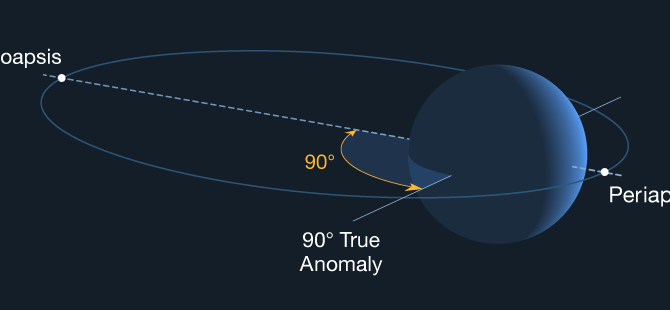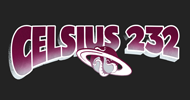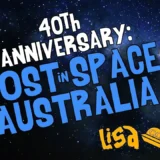 Welcome internet traveler. I will be stockpiling neatly organized bits into a collective known as a blog along this portion of your journey. Do not fear for your personal safety, as I will take great care to observe the rules of hospitality during your visit. As I am a certifiable Tech Geek, I will spend a portion of my efforts exploring the connection between science and technology and science fiction, fantasy, and horror literature. Please observe all safety regulations as the bits in my collection coalesce.
Welcome internet traveler. I will be stockpiling neatly organized bits into a collective known as a blog along this portion of your journey. Do not fear for your personal safety, as I will take great care to observe the rules of hospitality during your visit. As I am a certifiable Tech Geek, I will spend a portion of my efforts exploring the connection between science and technology and science fiction, fantasy, and horror literature. Please observe all safety regulations as the bits in my collection coalesce.
As I stumbled between the overflow boxes of books hoardishly stacked in my basement, I wondered at my changing attitude towards them. While in my younger days, I sought them out like a crusader after the Holy Grail, now I find myself stifling a curse as I kick the boxes out of the way. Likewise as I walk past my bookcases filled with paperback trophies, I hunt for my trusty Kindle and its electronic comfort. How did I get here? How did I get to the point of wanting to Burn My Books? The clutter of all the paper is starting to suffocate me.
In college I took a history of the book class. We started our research at the beginning of time. One person had something they wanted to mark down. He etched characters into stone and handed it to his buddy. The sample I examined was double the size of a bar of soap and made of pink clay. It fit nicely in the palm of my hand. Columns of cryptic characters covered one face of the stone. Someone back in the BC had invented the technology to communicate through the written word.
Time passed. Someone else decided they wanted to get the written word out to more people with less effort. Technology again blossomed out of desire. Vellum and ink provided the advancement needed. Dried animal skins made for a nice medium to copy down thoughts and ideas. The books are a bit heavier and a tad thicker. Each page felt like a stiff piece of leather that had been left out in the rain. As the scribes developed writer’s cramp, penning the same words over and over again, they wrote around worm holes in the vellum and created magnificent illuminations.
But again technology pulled the written word forward. The need to reach even more people pushed technology to the printing press. Famously Johannes Gutenberg used his version of the printing press to create the Gutenberg Bible in Germany during the 1400s. The technology behind the Bible required movable type that could be rearranged for each page. During my college course I had the arduous task of setting the type on a much more advanced printing press than the one used by Gutenberg. Placing each letter in sequence, shoving tiny slivers of metal between the letters for spacing, and putting wooden blocks around the outside for alignment was a painstaking process. We only had a few short poems to print on one page. I can only imagine the effort to typeset the entire Bible. Beyond the technological breakthrough presented by the printing press, the ink and paper used were monumental. Paper was lighter, cheaper, and easier to make than vellum, and the ink used by Gutenberg was bordering on miraculous. I was fortunate enough to handle one page of a Gutenberg Bible. After nearly six hundred years the paper was still crisp and white and perfect. The letters of each word seemed to stand off the page. They almost seemed raised. They were each so stark and clean. I have never seen a book or document so artistically printed.
That page made me ask why our books today are not so perfect. The answer again is technology. Today we have the ability to print that same quality, but we choose not to. As books became more and more widespread, we found print quality to be driven by two things: cost and disposal. In order to reach the volumes of distribution, the price must come down, resulting in cheaper paper and cheaper ink. Now consider you have millions of newspapers printed each day multiplied by three hundred sixty-five days a year, that’s a lot of paper to wedge into the landfill. Using paper that can decompose easily helps reduce the volume of waste in the world.
Now we find ourselves again on the brink of a technological revolution. The same driving factors are at work. How can we capture even more eyes with our written words? How can we reduce the cost of each copy even more? We all know the answer. We collect bits into well-ordered strings that represent ASCII characters: letters and numbers and hash tags and such. In place of paper, we have even more bits representing paper. Fact or myth, an instructor told me that the space shuttle required more than 100,000 lines of code to launch, but MS Word in its earliest incarnations required over 4 million lines of code. The technology behind this effortless evolution of the written word is high science that with our modern eyes seems mundane.
So again I cast my eyes upon my mountains of paper and wonder if this is the last horizon for this outdated technology. A friend once asked me why I would want so much paper. At the time, I thumped my chest and told him to gaze upon the greatness of my library. Now I hope that I don’t have to move them all. I speculate how they would look burning in my fireplace. Technology drags us along whether we are ready or not. A major book seller closes its doors. At one retailer ebooks outsell all the print books. Reduce, reuse, recycle chase us around wherever we go. Someone let me know. Is now the time to burn your books?
Postscript: In four thousand years we have gone from stone tablets to electronic tablets. Where will we be in four thousand more? Or four hundred more for that matter? Farewell on your continued journeys, oh explorer of the internet. Return soon for a sampling of my next collection of bits. Until then I will excite the electrons with my keyboard and see how they form.
R.K. Troughton works as an engineer, developing tomorrow’s high-tech gadgets that protect you from the forces of evil as well as assist your doctor in piecing you back together. His passion for science fiction and fantasy has been fed through decades of consumption. He is the author of numerous science fiction and fantasy screenplays and short stories, and his debut novel is forthcoming. His articles appear every Wednesday morning on Amazing Stories.










Recent Comments